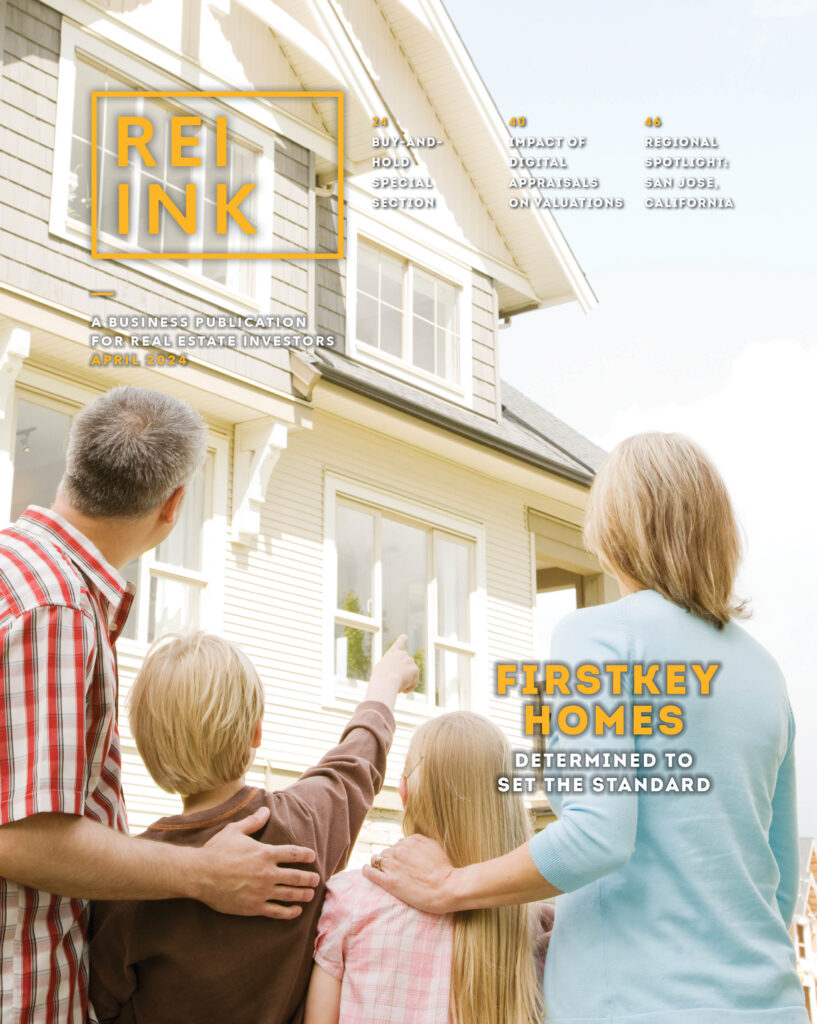Regional Spotlight: Denver, Colorado

A strong summer could balance the Mile High City’s soft spring.
It surprised no one that Denver, Colorado’s, housing market took a hit in spring 2020. After all, no market has been unaffected by the economic downturn the coronavirus pandemic brought on.
However, real-estate-related behavioral trends that emerged at the end of April when some “stay-at-home” restrictions were lifted in Colorado indicate a strong summer for residential real estate could help balance out this year’s difficult spring. The Denver market’s combination of attractive qualities and resilient employers will, in conjunction with state and municipal policies regarding economic reopening, determine the future of this real estate market.
“The metro’s highly skilled workforce and business-friendly environment have prompted many company relocations and expansions,” wrote Yardi Matrix associate editor Anca Gagiuc in the company’s spring 2020 report on the Denver area. She warned that although rents were up by 0.3% to more than $1,500 at the end of the first quarter of 2020, rental demand would likely record a dip and rent growth would “flatten” in the coming months.
“The shock of falling oil prices and the novel coronavirus pandemic have put intense pressure on Denver, especially on its energy industry. Although tech firms brought an influx of high-paying jobs in 2019…some one-third of Denver’s employment opportunities are in at-risk sectors,” Gagiuc said.
At first glance, that outlook sounds bleak. For real estate investors, however, this dip could represent a relatively short-lived opportunity to engage in a highly competitive market with two-thirds of its employment sector considered relatively less “at risk” from the unknowns associated with COVID-19.
“This market is still extremely strong,” said Stephanie Walter, a local real estate investor, founder of Erbe Investment Group and a syndicator who owns and manages both single- and multifamily residential properties and projects in the area.
“The suburbs around Denver are still holding firm, thanks to huge population growth over the past decade,” she said. “For example, Fort Collins, Colorado, which is about an hour north of Denver, has tripled in population in the past 40 years and is still expected to double again by 2050.”
One of Walter’s properties “leased up” in mid-April of this year for $500 monthly rent more than the year prior, with built-in rent increases of $400 annually for the next two years.
“That was in the very middle of dealing with COVID-19, and they still felt like the terms were to their advantage,” she said.
Marco Santarelli, founder and CEO of Norada Real Estate Investments, agreed. “Of greatest importance to real estate investors in Denver is that growing population,” he said. “Jobs are increasing, and so are the number of renters. In just one year, the population of the metro area rose by 1.33% to about 2.7 million people. Greater Denver is home to about 3.5 million. The question, of course, is whether it will remain a sizzling real estate market amid the ongoing crisis in the nation.”
On the residential front, it appears likely the market will rebound quickly. Even in April 2020, median home prices rose year-over-year. Because inventory has been such an issue in this market for years, the shift in supply and demand is actually creating “the opportunity to balance out,” as Matthew Leprino, a representative for the Colorado Association of Realtors (CAR), described it. Leprino noted that unlike some other states, Colorado classified construction as an essential business, which will likely help the real estate market recover from coronavirus-related softening.
Changing Residential Preferences and Municipal Policies
One of the most important things to watch in the Denver market is how buyer and renter preferences are changing in response to shelter-in-place mandates and business shutdowns. Responses fall into two distinct categories: (1) a change in the desire for space in the home and (2) a shift in how employers view municipal and state shutdown policies.
Before March 2020, American homeowner and renter preferences had been trending smaller and sleeker, with more focus on community gathering areas and public amenities over large areas of personal space. In 2017 alone, the number of “compact townhouses” rose 13%. More than a third of homeowners were consistently expressing the desire for a smaller home rather than a large one in Trulia’s annual research surveys on homebuyer and renter preferences.
In the wake of COVID-19, those preferences have shifted dramatically. Kelly Moye, another CAR representative, reported her buyers have different priorities today.
“We have actually, for the last couple of years, spent a lot of time talking about downsizing—reducing your carbon footprint, getting smaller, leaner, more efficient. Whereas in the last couple of weeks, I’ve noticed people actually wanting more space,” she said.
Although Moye emphasized more studies are needed to establish the emergence of a new trend, she said her buyers are expressing desires to live closer to family, have ample room to work in the home and have more space in general.
Interestingly, fewer buyers are as concerned with school districts and moving before school starts, Leprino said.
“Back-to-school isn’t really what it was before, so folks aren’t as worried about getting into the school district of their choice because there might not be a school to attend,” he told local news channel CBS4.
The other factor that will affect the Colorado market in the coming months will be how the state implemented initial shutdown orders and how the state legislature and municipal government handled the “reopening” of the economy. Central to that is the classification of which businesses were essential and what types of services were permitted with social distancing.
Denver has benefited from decades of population growth in large part because the city itself and the greater metro area is extremely attractive to employers. An effectively reopened and safe business environment is crucial to retaining existing businesses and attracting new ones.
According to the 2019 CBRE Tech-30 Report, Denver is the country’s 10th largest tech market and ranks eighth in the nation for tech talent. The area is rife with tech companies looking to scale.
“Tech companies recognize that they can scale a lot more efficiently in Denver,” said CBRE vice president in Denver Matt Harbert. “While we do compete with the [San Francisco] Bay area, the region is actually one of the largest exporters of tech jobs to Colorado.”
With tech jobs come a host of other goods and services providers, and Denver is also host to a booming $22 billion tourist industry. If the state can reopen the economy and public venues successfully, companies will likely continue to feel confident about moving operations, divisions and even headquarters to this area.
On the other hand, if the state falters or is simply too slow to reopen, permanently damaging the businesses that call it home, Denver will have trouble competing with other, more successful metro areas in the future. Locating in the area will represent an inherent threat to a successful business by purely economic standards.
Pulling Back from the Precipice
According to many real estate analysts, Denver’s housing market was walking on a knife’s edge at the end of 2019. The market was scorching hot, but many were wondering how much longer the trend could continue. The issue of housing affordability in the area was rising in profile, and extremely scarce inventory threatened to send sales prices into the stratosphere. Nevertheless, 2020 was expected to be a strong year for the market after eight consecutive years of population growth, job growth and price gains.
“Denver has been one of the hottest real estate markets in the country for many years,” said Santarelli, noting that inventory tightened even further in early March 2020 when 761 home-sellers withdrew their homes from the market. That ongoing issue of limited inventory combined with a high quality of life and likelihood the area will recover over time from the COVID-related hit to its local
job growth is likely to insulate the greater Denver area in a way that make it a very attractive market, still today, for real estate investors.

Sidebar A: Major Employers in Denver, Colorado
Denver’s two top employers are the federal government and the state of Colorado, but these two behemoths keep company with 10 Fortune 500 companies and a host of other powerful corporations.
Here is a partial list of major employers in Denver, Colorado, and the Greater Denver area:
- DaVita*
- DCP Midstream*
- Western Union*
- Antero Resources*
- MDC Holdings*
- Climarex Energy*
- Liberty Oilfield Services*
- Summit Materials*
- Whiting Petroleum*?
- SM Energy*
- SendGrid
- Vertafore
- Udemy
- Robinhood
- Checkr
- Slack
- Quizlet
- Guild Education
- University of Colorado Systems
- Centura Health
- Comcast
- Wells Fargo
- Children’s Hospital Colorado
* Indicates a Fortune 500 Company
? Whiting Petroleum filed for bankruptcy at the start of April 2020 and agreed to hand most of its ownership to noteholders in exchange for erasing more than $2.2 billion in debt.
Sidebar B: Denver’s Luxury Real Estate is Its Earliest COVID-19 Casualty
Although prices in most segments of the Denver real estate market remained largely stable throughout a tough spring this year, the luxury segment of the market certainly suffered the most. As high-end buyers faced tighter lending standards on mortgages just when stock holdings and annual incomes were in jeopardy, homes priced at $1 million and above were down 33% in April compared to March 2020 and down 1% year-over-year.
According to Jill Schafer, chair of the Denver Metro Association of Realtors (DMAR) Market Trends committee, the luxury market in Denver is also shifting in buyers’ favor. She credited a shortage of jumbo loans. However, Schaefer said, this trend does not extend into the middle or lower segments of the market.
“This is not an opportunity for low-ball offers [in the $300,000 to $399,000 range],” she said, citing low inventory as an impetus for potential buyers to make fast and best offers.
On average, in April, midrange homes sold in 20 days, nine days fewer than during the same period in 2019.
“That indicates the people who are out there buying need to buy and need to do it quickly,” Schaefer said. Because Denver and Colorado both classified multiple sectors of the real estate industry as “essential” and quickly moved toward virtual showings and closings along with the rest of the country, local real estate professionals hope the market will recover quickly over the summer.















